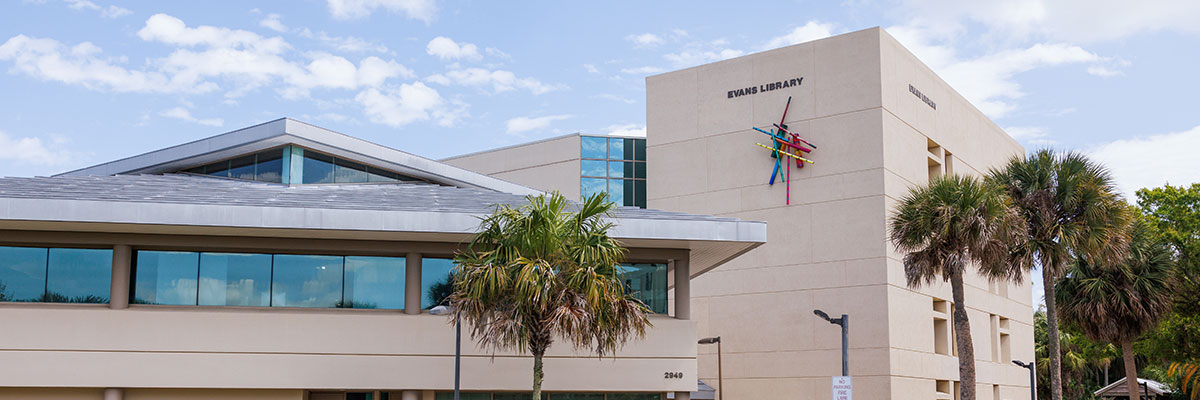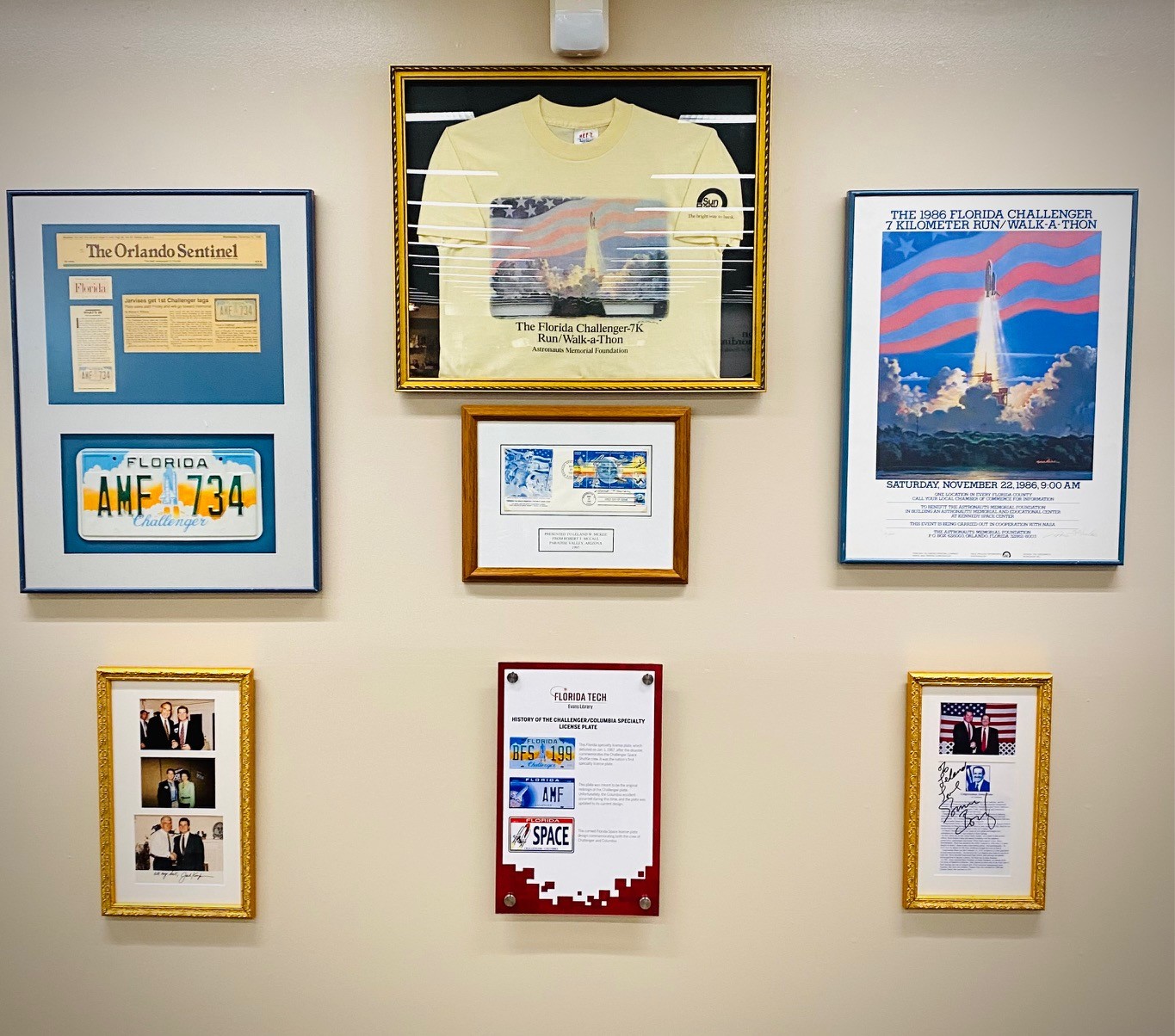
Preserving Space History at Florida Tech
This fall, Florida Tech alumnus Leland McKee (’83, MBA ’86) generously offered rare space history artifacts from his personal collection for display at the university. After connecting with President Dr. Nicklow’s office, McKee partnered with the Dean of Libraries to create an archival exhibit that aligns with the Library’s mission to showcase historically significant materials. The agreement ensures these items will be on display for at least five years, with options to renew—giving multiple graduating classes the opportunity to experience this piece of Space Coast history.
About the Astronauts Memorial Foundation
Founded in 1986 after the Challenger disaster, the Astronauts Memorial Foundation (AMF) was established by local leaders including architect Alan Helman, Congressman and astronaut Bill Nelson, and Florida Tech alumnus Leland McKee and others. AMF honors astronauts who lost their lives during U.S.-sponsored human spaceflight missions or related training and inspires future generations through education. The foundation maintains the Space Mirror Memorial at Kennedy Space Center, where 25 astronauts are commemorated, and operates from the NASA Center for Space Education to provide learning opportunities for students and educators worldwide.
Funding Through Specialty License Plates AMF and the Space Mirror Memorial are partially funded by Florida’s specialty license plate program. The first plate—designed by renowned space artist Robert McCall—was introduced in December 1986 as Florida’s first vanity plate and became known as the Challenger plate in 1987. This initiative raised millions for educational programs across the state. Following the Columbia disaster in 2003, the plate was updated to honor the crews of both lost shuttles, and, in 2004, was renamed the Challenger/Columbia plate.
Robert McCall, celebrated as NASA’s visual historian, documented America’s space program for more than 35 years—from Alan Shepard’s first flight to Neil Armstrong’s steps on the Moon. His work includes the six-story mural at the National Air and Space Museum, U.S. postage stamps commemorating space milestones, and conceptual art for films such as 2001: A Space Odyssey, Star Trek, and The Black Hole. McCall also designed Florida’s first specialty license plate, helping fund AMF’s mission.
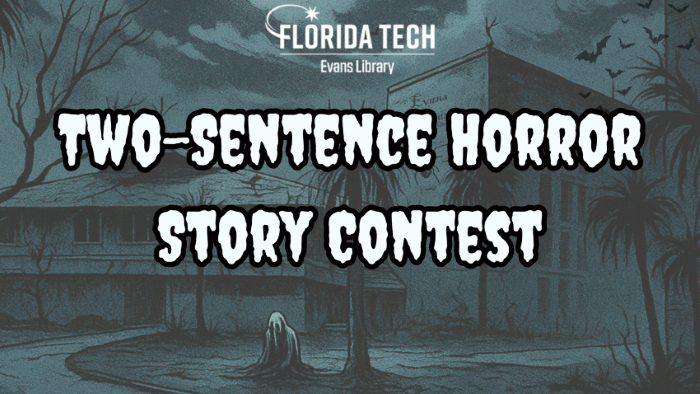
Two-Sentence Horror Story Contest Winners
To get into the spirit of spooky season, the Evans Library held a two-sentence horror story contest. We had almost 40 blood-curdling entries, and it was a gory task to judge the best entries. Below are the top three gruesome winners, and the haunted honorable mentions are below the eerie image.
First Place – Jorge Granados-Hernandez
I only wanted to feel her heartbeat. I didn’t expect the hospital to let me in, disguised with scrubs, into the operating room.
Second Place— Lorelai (Aero) Draney
I was told to write down everything I remember, something about helping me stay grounded. But so many of these pages are in someone else's handwriting.
Third Place—Andre Colina
As I unlock the door to my new residence I find myself deep in thought. I hope these people give in faster than the last few did.

Tracing Florida Journeys
Evans Library is delighted to partner with the Community Foundation for Brevard for the third consecutive year. This year’s featured speaker is Dr. Leslie Kemp Poole, an associate professor of environmental studies at Rollins College in Winter Park, Florida.
Tracing Florida Journeys, part of the Florida Humanities’ Florida Talks series, features highlights from Dr. Leslie Poole’s extensive research on notable explorers and voyagers who traveled through Florida and documented their experiences. Spanning the colonial era to the twentieth century, Poole traces their paths and words to reveal how these landscapes have transformed over time, offering a compelling narrative of Florida’s natural history and the evolving human perceptions of it. Through this talk, Dr. Poole hopes to enlighten and inspire audiences to appreciate the state’s environmental and cultural legacies.
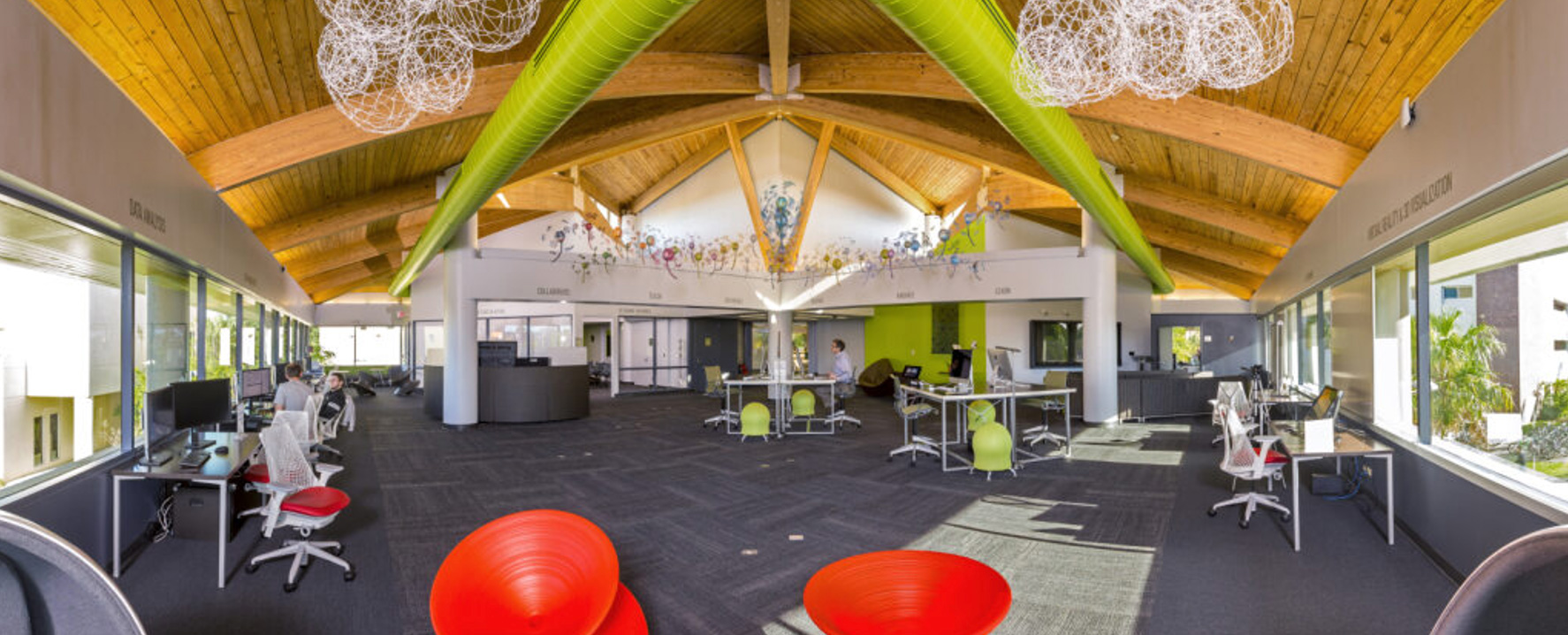
Ten Years of the Digital Scholarship Lab
It’s difficult to imagine Evans Library without the Digital Scholarship Lab (or the DSL as many know it today). But just ten years ago, the DSL was transformed from a dark, cramped computer lab into an innovative, comfortable, and collaborative space complete with cutting-edge technologies.
The Origin Story/ A Vision for Innovation: The Story Behind the Digital Scholarship Lab
In 2014, former Dean of Libraries Dr. Sohair Wastawy anticipated the growing need to support Big Data on campus. Having worked for over 17 years at Illinois Institute of Technology, she knew the importance of senior design projects and the challenges students faced in completing them. “Students needed more than just access to technology,” Dr. Wastawy explained. “They needed help learning complex software, a place to test ideas, and a community where collaboration could happen naturally.”
At the time, students often had to move between different computer labs across campus to find the software they needed. Dr. Wastawy imagined a single, central space equipped with specialized tools and comfortable seating —“a coffeehouse-like environment where students would want to stay, study, and create.” The library could be that “third place” on campus, a home away from home that offered a welcoming environment beyond classrooms and dorms.
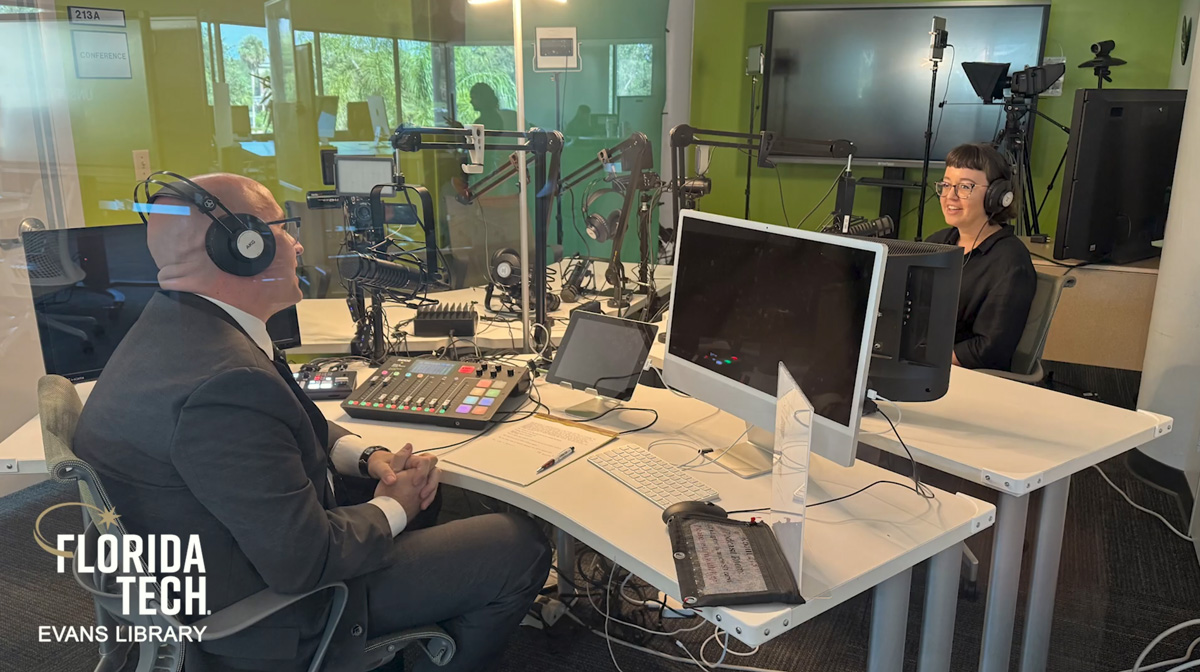
Cultural Production in the Age of AI
This conversation between the Dean of the Evans Library Jason Martin and Dr. Anna Muenchrath, assistant professor at Florida Tech, covers Dr. Muenchrath's research on world literature, translation studies, and the influence of algorithms on the book industry.
Dr. Muenchrath's work explores the forces that determine which books get translated into English. She highlights that the U.S. is "translation poor," with only about 3% of works published annually being translations. This is in stark contrast to other countries where the percentage can be as high as 40-50%. This low rate makes the selection process of translated works even more significant. Historically, small publishers would take a risk on translating literary fiction, hoping for a return on investment if the book gained prestige, such as a Nobel Prize. Now a system like Amazon Crossing, Amazon's translation imprint, takes a different, data-driven approach. They translate popular genre fiction like Mysteries and Romances, relying on sales data from Amazon marketplaces in other countries. This strategy seems to make the translation process less risky but also raises questions about the homogenization of global culture.
Dr. Muenchrath suggests that all selection processes, whether by a publisher or an individual, can be seen as a form of algorithm. Amazon's system uses data to influence reader preferences, and this new algorithmic system is compared to past cultural influencers like Oprah Winfrey, whose book club had an immense impact on the publishing industry. The discussion also touches on how Amazon's model has helped increase sales of "backlist" books (older titles) that are no longer stocked in physical bookstores.
The conversation concludes by exploring the value of literature and critical thinking. Dr. Muenchrath argues that literature is a "playground for critical thinking," teaching readers how to interpret and articulate their understanding of the world. She differentiates this from AI-generated text, asserting that while AI can produce language, it lacks the human experience necessary to create meaningful art. The discussion emphasizes that the value of literature lies in its ability to connect us to another person's unique experience and perspective.
Listen to the full conversation here:

Forty Years of Library Innovation
Evans Library celebrated its 40th anniversary last year, marking four decades as a vital center of research and innovation at Florida Tech. Since its opening in 1984, Evans Library has evolved with the times and technology to meet the diverse needs of students, faculty, and the campus community.

 Give to Florida Tech
Give to Florida Tech 